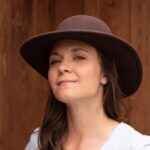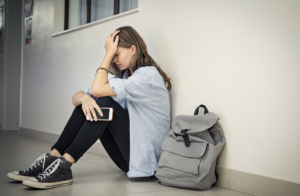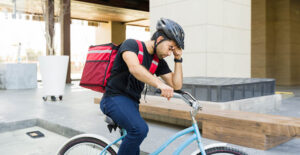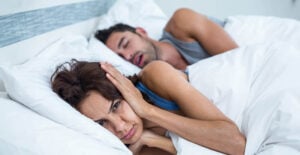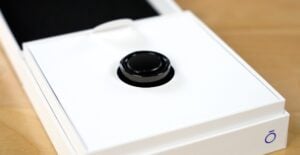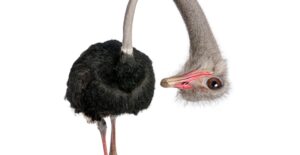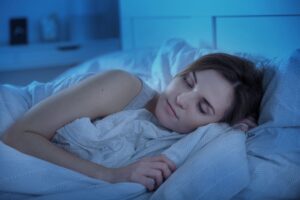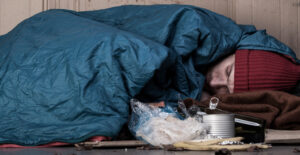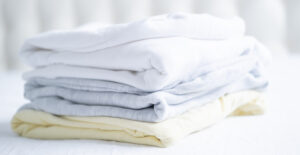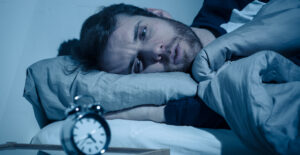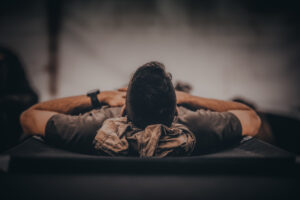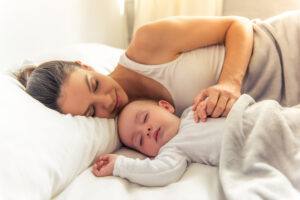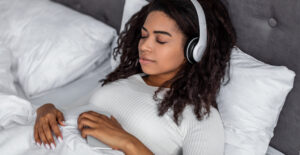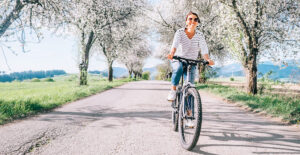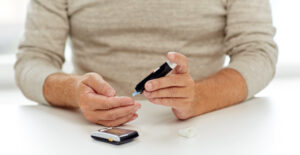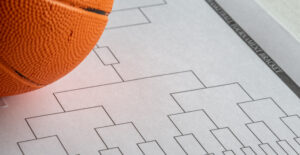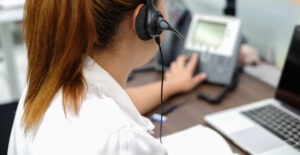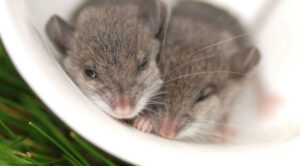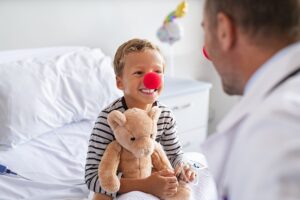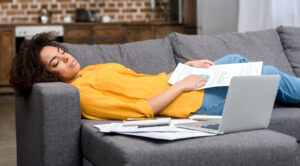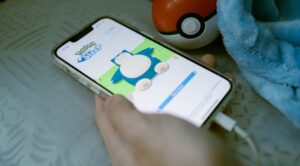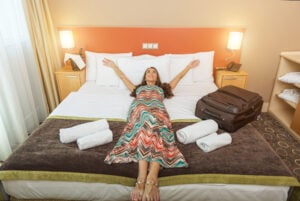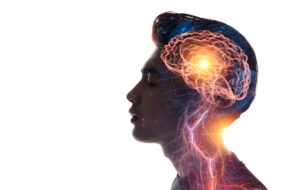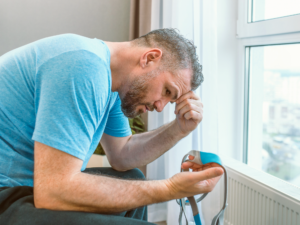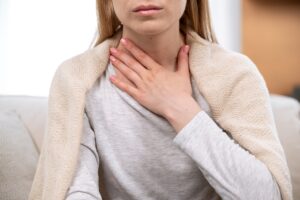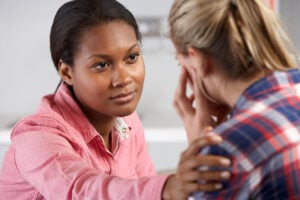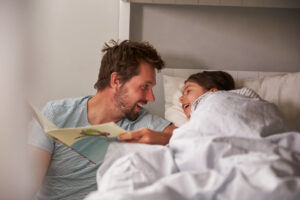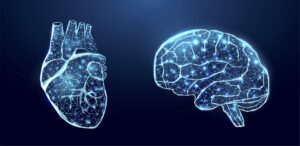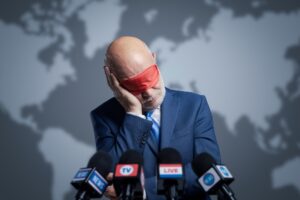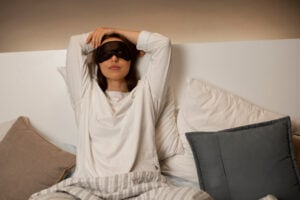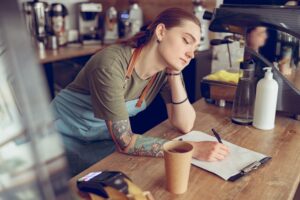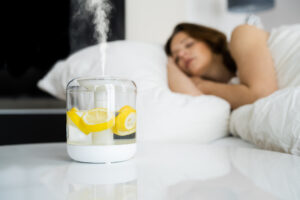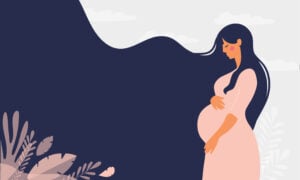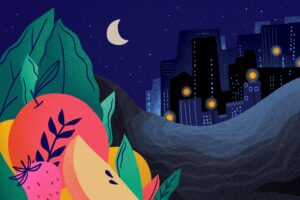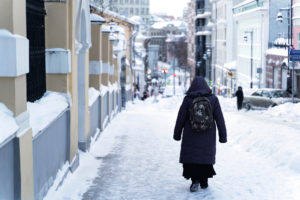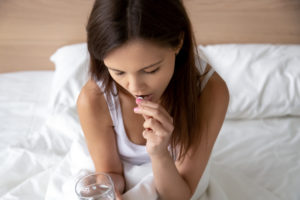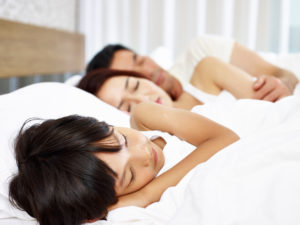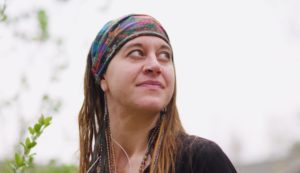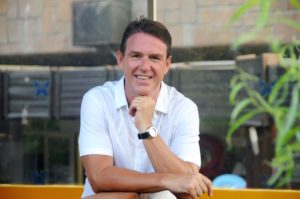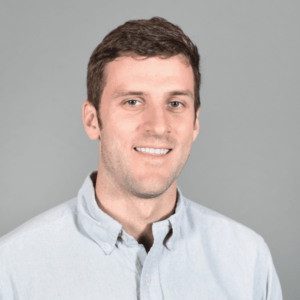The Year in Sleep: 37% of Us Slept Worse in 2023
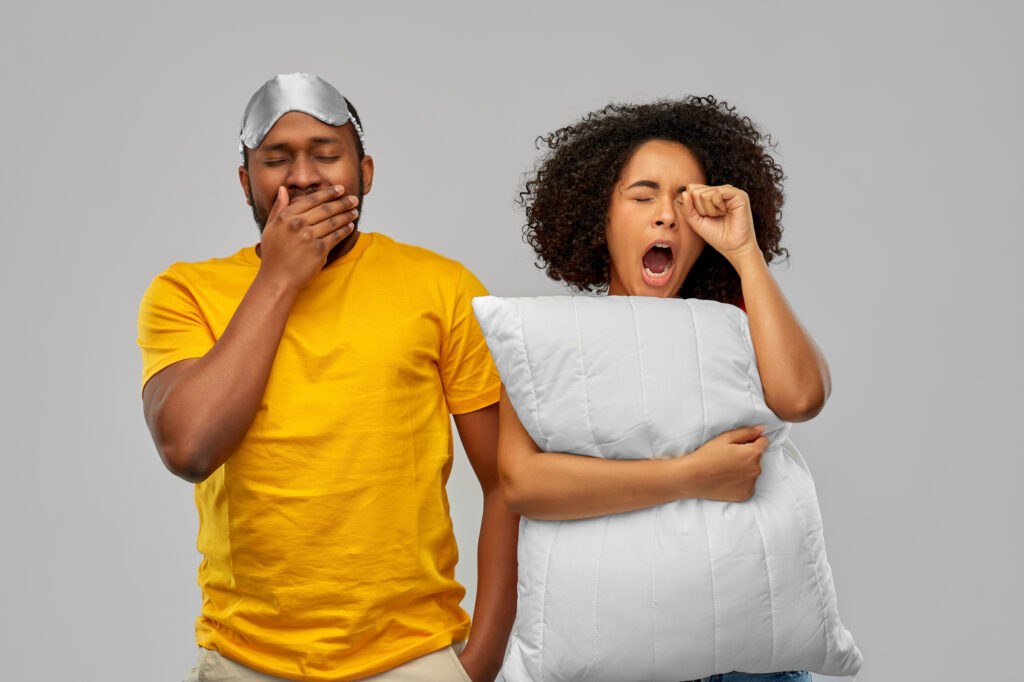
- 37% of U.S. adults say they slept somewhat or much worse in 2023 than in previous years.
- The top sleep hacks people used to improve their sleep this past year were showering before bed (45%), using a weighted blanket (26%), and keeping a bedroom window open (26%).
- 27% exercised more to improve sleep, 27% got up earlier, and 25% limited or avoided caffeine, while only 19% turned off their phone at bedtime.
- The most popular products purchased to improve sleep were comfortable pillows (40%), quality sheets (24%), and a new mattress (23%).
- Awareness around sleep trends in 2023 was highest around smart mattresses (25%), noise other than white (e.g. pink/brown) (22%), and sleep podcasts (20%).
Sleep had a moment in the limelight this year. As a third of Americans still don’t get enough sleep, we tried a lot of new trends to improve our nightly outlook. We invested in expensive sheets and fancy alarms that double as sunrise clocks. We tested out sleep tourism and rested in luxury hotels with elaborate sleep sprays and silk face masks. We even relied on classic American actors and their soothing voices to lull us to sleep. This year was great for many reasons, but a highlight was our newfound emphasis on sleep health.
According to Google Trends, ‘sleep’ hit an all-time high as a search topic in 2023. Specific searches such as, ‘Why am I tired all the time’ were especially common as Americans flocked to Google to troubleshoot their sleep issues.
“We live in a world that glamorizes the grind, which means millions of people are living in a chronic stress state,” says Sarah Silverman, PsyD, a behavioral sleep medicine specialist who trained at the Stanford Sleep Medicine Center. “[This] leads to numbing behaviors such as watching Netflix for hours or mindlessly scrolling social media to avoid daily stressors.”
Over the past year, Americans sought to fix their sleep issues through a number of avenues. According to a November 2023 SleepFoundation.org survey of 1000 Americans, 20% of us struggled with night wakeups, and 17% simply couldn’t fall asleep. So, we tried some new things. Some 27% of us limited our caffeine consumption, and 25% considered a smart mattress. 15% of respondents even tried sleep divorce—sleeping separately from their partner—to fix their sleep woes.
But did all those trending TikTok videos actually change our sleep behavior? We took a look at the past year in sleep. Here’s what we found.
Why Were We Suddenly Interested in Sleep?
Sleep is a basic human need and something we’ve always required to function in daily life. So, it’s interesting to note that 2023 was when the topic popped onto the radar for so many folks. There isn’t any single reason, but some experts still think Covid-19 is to blame.
“The significant worsening of sleep during the pandemic was the biggest driving force… With so many more people working from home and losing that routine, we saw sleep patterns worsen overall.”
–Dr. Angela Holliday-Bell, physician and Certified Sleep Specialist
“The significant worsening of sleep during the pandemic was the biggest driving force, I think,” says Dr. Angela Holliday-Bell, a board-certified physician and certified sleep specialist. “With so many more people working from home and losing routines, we saw sleep patterns worsen overall.”
Dr. Holliday-Bell also thinks that our newfound interest in sleep comes from the availability of so much new information. People are exposed to novel ideas and concepts on social media, and there are a lot more sleep-focused tech gadgets on the market today. “With the advent of things like sleep trackers, people have become more aware of poor sleep habits,” she says.
Sleep disorders made headlines in 2023 too. In June, the press reported that President Biden began using a CPAP machine for sleep apnea, a condition that causes pauses in breathing and disrupts sleep during the night. This announcement launched sleep apnea into the spotlight for many people who hadn’t been familiar with it.
Quirky Sleep Hacks Filled the Internet
On TikTok, several sleep-related hacks took the country by storm. Bed rotting—lounging in bed all day by choice—was one of them, sweeping the Internet over the summer. This past spring, ‘Sleepy Girl Mocktails‘ were all the rage. Viewers mixed up tart cherry juice-based concoctions purported to provide the best-ever night of sleep.
Even though these trends became Internet-famous, data surrounding their effectiveness is inconclusive. According to survey respondents, only 13% tried bed rotting, which may be a good thing. “Spending too much time in bed can weaken your sleep drive,” Silverman says. She also notes that there is limited research to support tart cherry juice as a sleep aid.
Maura Jenkins, a 24-year-old freelance writer based in Denver, Colorado, first learned about mouth taping after listening to a podcast. This is the increasingly popular practice of taping your mouth shut at night in an effort to decrease fatigue and snoring and increase concentration levels during the day. Mouth taping saw a surge this year after it trended on TikTok.
After noticing all the sleep-related conversations online this year, Jenkins was inspired to improve her own. “I thought I was a bad sleeper and had to deal with the cards I was dealt,” she says. But all the online talk led her to mouth taping—and she says it’s really working for her.
“With mouth taping, I’m falling into a deeper sleep and wake up feeling so rested,” Jenkins says. She notes that she can recall dreams from the night before, which she couldn’t do previously. That said, only 7% of survey respondents have tried mouth taping.
But, 45% of respondents said they took a shower before bed to improve their sleep, making it the most popular sleep hack. Another 26% relied on a weighted blanket or opening a window.

Meanwhile, 12% of respondents tried using a sleep tracker for the first time in 2023. Sleep trackers—gadgets that monitor your sleep and report on the length and quality—have grown quite popular, with brands like Garmin, Fitbit, Apple Watch, and Oura all making rings, bracelets, or watches. Katie Levy, a 39-year-old technology consultant in Bellingham, Washington, began using the Whoop bracelet to figure out how her sleep quality and quantity affect her life.
“It’s a part of my routine now,” Levy says. “It’s one variable that helps me make sure I’m fueled properly and rested for the activities I like to do.” But she also says that there is some anxiety that comes with seeing poor data in the morning. Levy notes that she just tries to remember that sleep tracking is but one variable among others (like exercise and diet) that helps to try to get sufficient sleep.
Sleep Trends Actually Worth Following
With TikTok and social media throwing sleep hacks at us all year long, it may feel daunting to now find one that is actually vetted by science. According to both Dr. Holliday-Bell and Silverman, there is one concept to latch onto: circadian rhythms, our bodies’ internal 24-hour clocks. Both sleep specialists agree that any innovative products emphasizing our unique circadian rhythms are worth a look.
“Sleep gadgets … such as light therapy glasses for the morning and red light at night will have a significant effect on people’s sleep,” says Dr. Holliday-Bell. Light therapy glasses expose people to various wavelengths of light to help manage our internal clocks and encourage better nighttime sleep. She believes that a lot of sleep disruption boils down to circadian disruption, so realigning those rhythms could be a powerful solution.
“Structuring your day versus night from more of a circadian-aligned standpoint has been shown to lead to better health outcomes and increased longevity”
–Sarah Silverman, PsyD, behavioral sleep medicine specialist
Silverman agrees, noting that bio-individuality is crucial. “There isn’t a one-size-fits-all approach to addressing individual health needs,” she says. As a starting point, Silverman suggests learning about your chronotype to determine basics like whether you’re an early bird or a night owl. Use that information—rather than the latest TikTok trends— as a guide rail for further decisions. “Structuring your day versus night from more of a circadian-aligned standpoint has been shown to lead to better health outcomes and increased longevity,” Silverman says.
Methodology
The survey commissioned by SleepFoundation.org was conducted on the online survey platform Pollfish in November 2023. Results are from 1,000 survey participants in the United States who were ages 18 and older at the time of the survey. All respondents attested to answering the survey questions truthfully and accurately.
Got a hot tip? Pitch us your story idea, share your expertise with SleepFoundation.org, or let us know about your sleep experiences right here.
References
4 Sources
-
Sleep and Sleep Disorders. (September 7, 2022) Centers for Disease Control and Prevention, Retrieved December 6, 2023 from
https://www.cdc.gov/sleep/index.html -
Kwai, Isabella. “Can’t Sleep? Listen to an a.i.-Generated Bedtime Story from Jimmy Stewart.” The New York Times, The New York Times, 5 Dec. 2023
https://www.nytimes.com/2023/12/05/technology/calm-jimmy-stewart-ai.html -
Celmer, Lynn. Viral Tiktok Trends Are Not the Answer for Better Sleep. (27 July 2023) American Academy of Sleep Medicine – Association for Sleep Clinicians and Researchers., Retrieved December 6, 2023 from
https://aasm.org/viral-tiktok-trends-are-not-the-answer-for-better-sleep/ -
Shivaram, D. “Biden’s sleep apnea has led him to use a CPAP machine at night.” (June 28, 2023) NPR., Retrieved December 14, 2023 from
https://www.npr.org/2023/06/28/1184901887/bidens-sleep-apnea-has-led-him-to-use-a-cpap-machine-at-night
